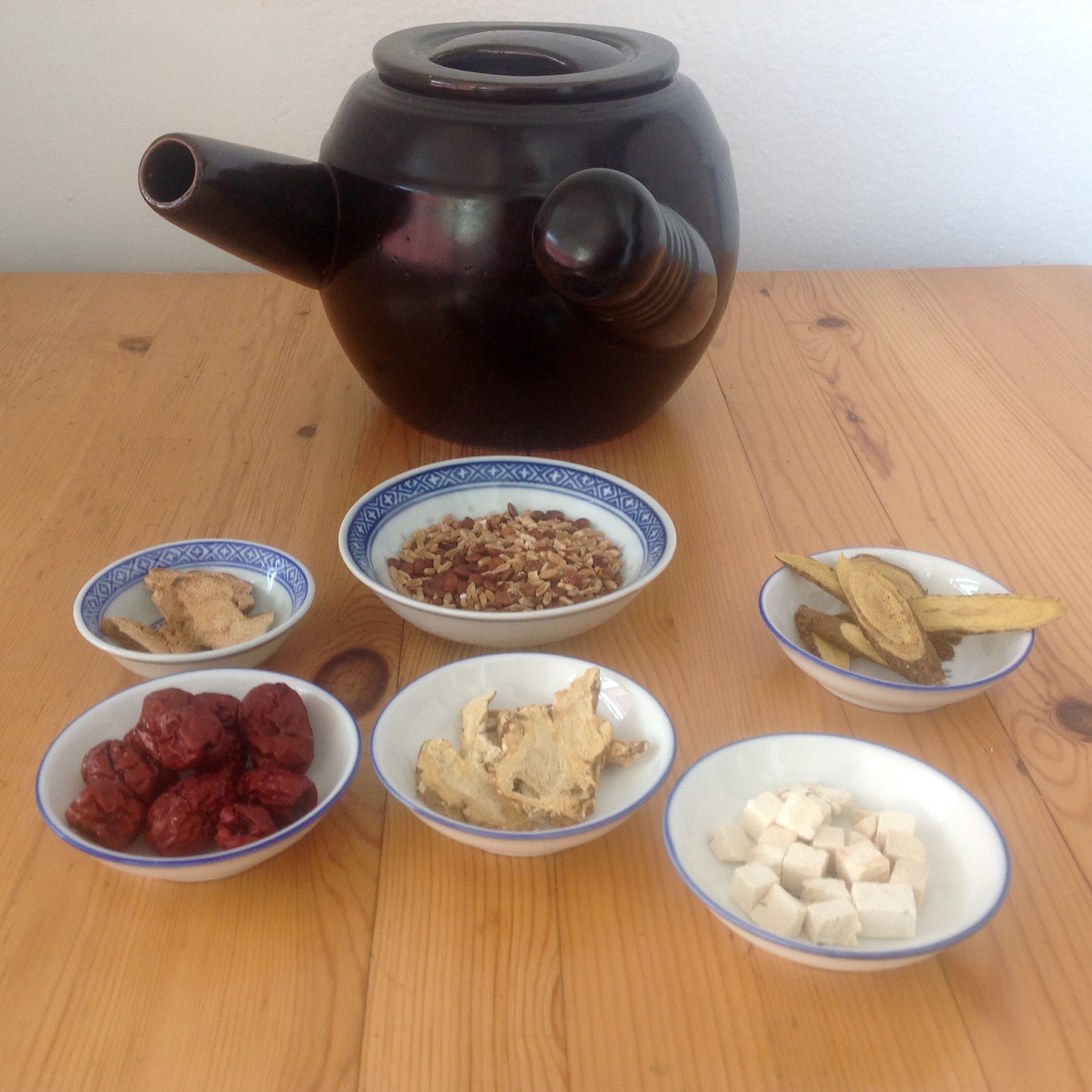Chinese herbal medicine is a wonderfully complex practice which goes way beyond the typical Western approach of “take this one thing for this condition” which follows the same logic as the prescribing of drugs, which is to treat diagnoses rather than people. In Chinese herbal medicine, a variety of substances will be combined together, some for their primary effects, some for their synergistic properties, and some to mitigate the side effects of others. A well-constructed Chinese herbal formula can be as subtle and nuanced as the presentation of the individual for whom it’s been designed. As that individual’s symptoms change, getting better or worse or moving throughout the body, the formula can be adjusted to keep up with those changes.
The process of cooking herbs is much like making soup. In fact, the Chinese word “Tang” which is often translated as “decoction,” also translates as “soup.” In Chinese herbal medicine, the border between food and medicine is often blurry, food is viewed as being medicinal and so the theory which informs herbal medicine also informs medicinal cooking. The process of cooking an herbal formula can be a fun, meditative ritual which many people feel gives them a sense of empowerment over their health.
Video Instructions
Instructions
The Pot
That said, once you’ve got your herbs, you’re going to need a pot to cook them in. This is a picture of a traditional Chinese herbal medicine cooking pot. It’s ceramic, has a lid, and it has this distinctive feature where the handle and spout are on the same side. These are widely available at your local Chinatown or online. By no means to you need one of these in order to cook your herbs, but you will need a pot with a lid, and it’s best if it’s ceramic or some kind of glass cook wear. Some of the chemicals in the herbs can interact with metal pots, so if metal is your only option, use stainless steel but avoid using aluminum, copper, or cast iron.
The Water
In the old days, the type of water one used to cook the herbs in was thought to matter; some formulas called for well water, melted snow water, or rain water. This is less of an option for modern city dwellers, so just make sure you’re using clean, filtered drinking water.
Cooking the Herbs
You may want to give your herbs a quick rinse, just to clean off any dirt or dust which may have accumulated during shipping or processing. After that, put your herbs in the pot and add enough water to cover by about an inch and a half. Some sources recommend soaking the herbs at this point for about 15 -30 minutes without heat. After the optional soak, turn on the heat to medium-high and bring the herbs to a boil. After coming to a boil, reduce the flame so that your herb “soup” is at a simmer. Generally you want to cook until the volume is reduced by about 1/3. This should take anywhere from 20-40 minutes depending on what’s in the formula and how much water you have. Some herbs require different cooking times, some leafy, aromatic herbs are added just during the last 5 minutes of cooking so that the volatile oils are not boiled off. Some heavy, mineral substances can require up to an extra 30-60 minutes of cooking before adding the rest of the formula. A formula of mostly tonic herbs will cook for about 40 minutes. Your prescribing acupuncturist/herbalist should provide you with instructions for any herbs which require special treatment.
Strain the Herbs
Once the herbs have cooked, strain off the liquid and reserve. Many formulas you may cook a second time, just as the first (without the soaking), then combining the second cooking liquid to the first after it’s strained off. This second cooking draws out many of the deeper properties of the formula.
If you’re interested in having a custom herbal formula made, make an appointment with your local acupuncturist/herbalist.
In Caritas,
Jorga Houy, L.Ac.


